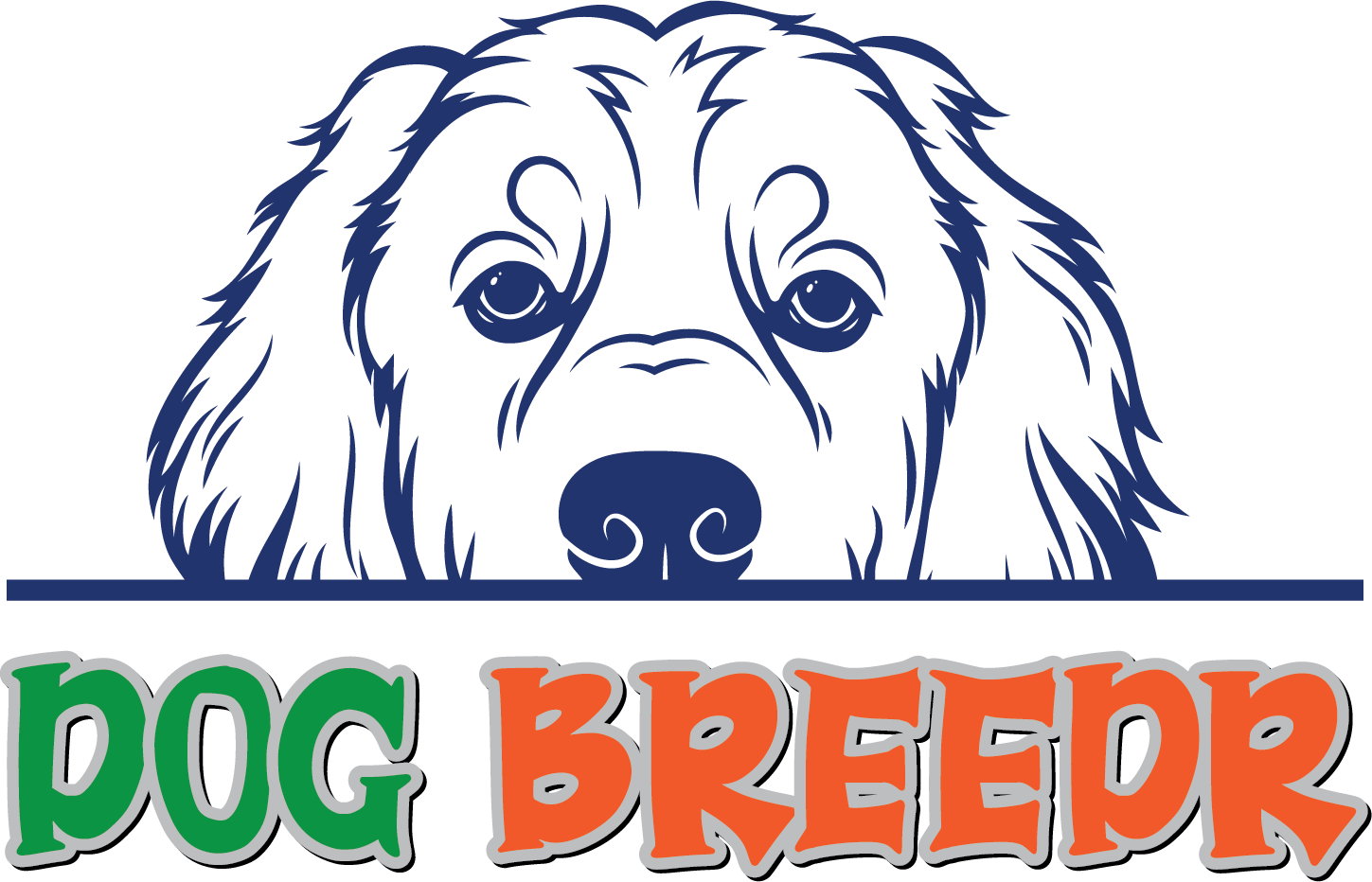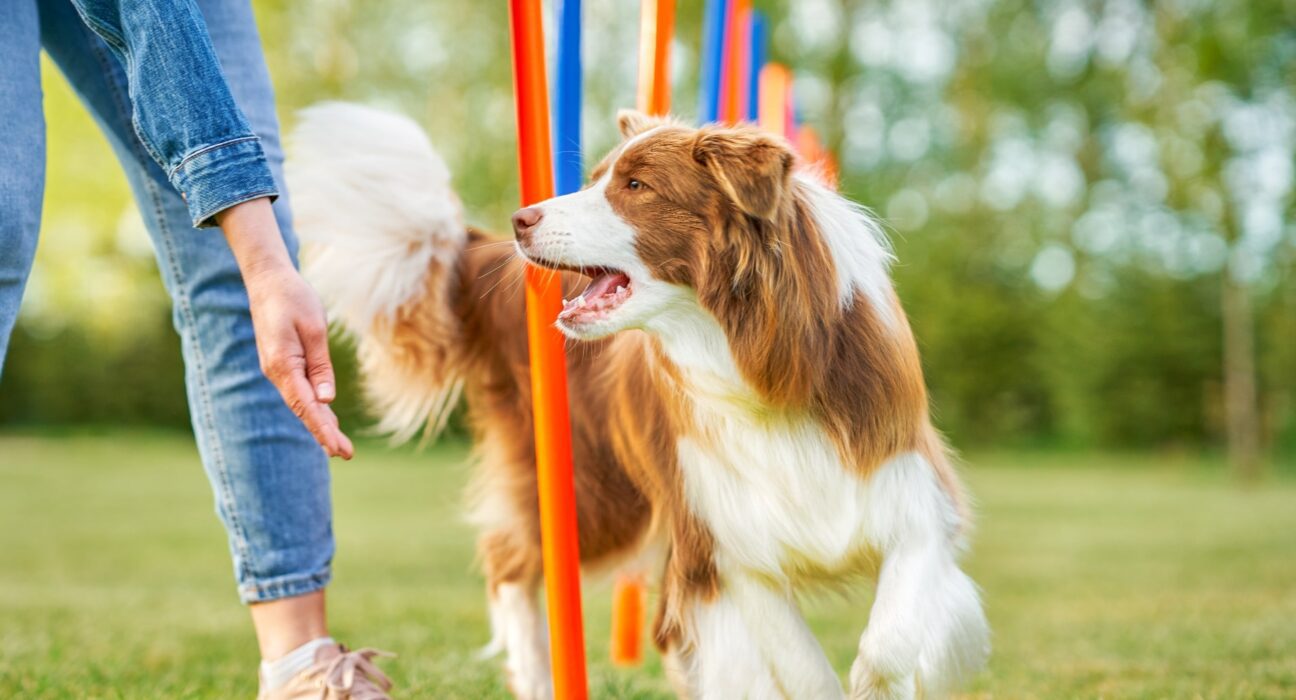The Border collie is an intelligent and active breed of herding dog from the Anglo-Scottish border region. They are renowned for their looks, athleticism, and working instinct.
Bred to work on farms and ranches, Border Collies have been used to herd sheep since the 19th century. They are incredibly dedicated and loyal workers, capable of aiding in various tasks with incredible skill.
They can make great family dogs and excellent sporting partners with proper training and socialization. In this article, we will explore the history and characteristics of this amazing breed.
Border Collie History
Border Collies had a long history from the early 1800s when shepherds in England bred them for their herding abilities.
The breed was originally known as the “Collie Rough,” but it was later changed to the Border collie in 1915.
These dogs were specifically bred for their keen intelligence, high energy levels, and athletic ability. They were often used on farms and ranches to herd sheep, goats, and other livestock animals.
This tradition continues today, with many Border Collies still being used as working dogs on farms worldwide.
Appearance
Border Collies are medium-sized dogs that usually weigh between 30-45 pounds (14-20 kg). They have a double coat that can be either wavy or smooth and come in a range of colors, including black, white, blue merle, chocolate, or red and white.
They have a long muzzle, and triangle-shaped ears set high on their head. Their eyes are typically brown, but they can also be blue or bi-colored.
Personality
Border Collies are known for their intelligence, athleticism, and desire to please their owners. Active dogs need plenty of mental stimulation and physical activity to stay healthy and happy.
They thrive with consistent training and socialization from an early age. They make excellent family pets, although they can sometimes try to take over the house if not given enough attention!
Border Collie Health Problems
Common Border collie health problems include hip and elbow dysplasia, hypothyroidism, eye diseases, skin allergies, and seizures.
- Hip Dysplasia
Hip Dysplasia is a developmental abnormality in which the ball-and-socket structure of the hip joint does not properly form or develop correctly.
This can cause pain and intermittent lameness in the hind legs. Diagnosis usually involves X-rays, genetic testing, or a physical examination by a veterinarian.
Treatment may involve weight management, nonsteroidal anti-inflammatory medications, supplements, or surgery.
- Elbow Dysplasia
Elbow Dysplasia is similar to Hip Dysplasia but affects the front legs instead. It develops when bones in the elbow joint don’t grow correctly or fail to align properly. Diagnosis and treatment of Elbow Dysplasia are similar to Hip Dysplasia.
- Hypothyroidism
Hypothyroidism is a condition in which the thyroid does not produce enough hormones, resulting in various issues, including hair loss, lethargy, and obesity.
Diagnosis usually involves blood testing, and the condition can be managed with hormone supplementation or other treatments prescribed by a veterinarian.
- Eye diseases
Eye diseases such as progressive retinal atrophy (PRA), cataracts, and glaucoma are also common among Border Collies.
Early diagnosis can help manage these conditions before they cause more serious problems. Treatment may involve prescription eye drops or surgery, depending on the severity of the disease.
- Skin allergies
Skin allergies are common among Border Collies and can manifest as itching, scratching, or hair loss. Allergy testing is the best way to determine the cause of the allergy so it can be managed or treated.
- Seizures
Various factors, including genetics, metabolic disorders, infections, or brain tumors, may cause seizures in Border Collies.
Treatment usually involves medication prescribed by a veterinarian, but more tests may need to be done to diagnose the underlying condition causing the seizures.
Border Collies are generally healthy dogs with few health issues compared to other breeds. However, they have some conditions requiring regular monitoring and treatment from a veterinarian.
With proper care and preventive measures, these health problems can be managed, and your Border collie can live a long, healthy life.
What Is The Best Way To Train A Border Collie?
Once you have decided to add a Border collie to your home, the next step is to start training them. Training a Border collie can be an enjoyable and rewarding experience if done properly.
Here are some tips on how to train a Border collie:
- Start Early – Starting early is key when training a Border collie, as young puppies tend to learn quickly and easily.
Begin by teaching basic commands such as sit, stay, come and heel in short but consistent sessions throughout the day using positive reinforcement.
- Provide Structure – Consistency is essential for the successful training of any dog breed; however, it becomes even more important with Border Collies, who thrive on routine and structure. Provide consistent guidance and use the same commands in similar situations.
- Understand Their Nature – Border Collies are very intelligent, energetic, and active dogs that need plenty of physical and mental stimulation.
To keep them focused during training sessions, ensure their exercise needs are met through games, running, and playtime.
Also provide plenty of opportunities for mental stimulation, such as agility courses, puzzle toys, or obedience classes.
- Be Patient – Training a Border collie can take some time, and patience is key to any dog training program’s success.
Please don’t rush the process or expect too much from your pup too soon; instead, be consistent with your training methods and praise your pup for every small step forward they complete in their learning journey.
- Positive Reinforcement – Rewarding good behaviors with treats or praise is the best way to encourage your Border Collie to continue learning and doing its best.
Be sure to give plenty of positive reinforcement during training sessions, as this will help build a strong bond between you and your pup that will last a lifetime.
By following these simple steps and understanding the unique needs of your Border collie, you can ensure that they become a well-behaved member of the family in no time at all.
You and your furry friend can enjoy many years together with patience, consistency, and plenty of fun activities.
Conclusion
The Border collie is a loyal and intelligent breed of herding dog that is also an excellent family pet when properly trained and socialized.
They are active dogs who require plenty of mental stimulation and physical activity, making them great companions for active families or individuals.
With their good health overall and loving personality, the Border collie can make a wonderful addition to any home.
If you are considering a Border collie, it is important to research and be sure that the breed is right for you and your lifestyle.
With proper care and attention, these amazing dogs can bring their owners years of happiness and companionship.

